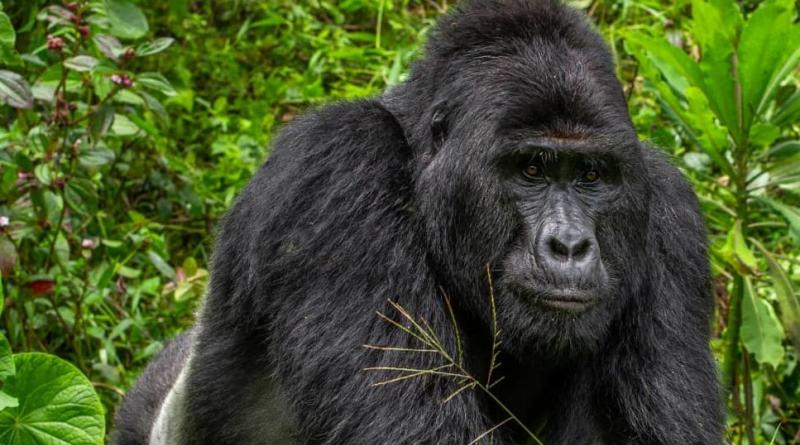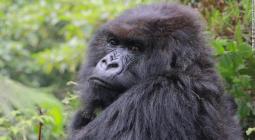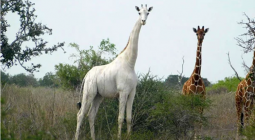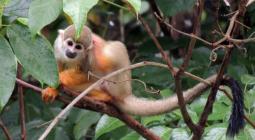Four Poachers Arrested After Killing of Rare Silverback Gorilla in Uganda.

Four poachers were arrested this week in connection with the killing of a rare silverback gorilla in Uganda’s Bwindi Impenetrable National Park, a lush preserve of mist-shrouded hillsides and thick rain forests that is home to nearly half of the world’s mountain gorillas, the authorities said.
The silverback, known as Rafiki, was killed by a poacher with a spear, according to the Uganda Wildlife Authority. Rafiki, who was believed to be about 25, was the leader of the famed Nkuringo gorilla group, which has been popular with tourists for decades.
The last time a mountain gorilla was killed by a spear was in June 2011, according to the International Gorilla Conservation Programme. But there are signs that poaching in gorilla parks has increased in recent months, as tourism has fallen because of the coronavirus pandemic, the organization said.
Rangers found Rafiki’s body on June 2, a day after he was reported missing in the park, the Uganda Wildlife Authority said. A post-mortem report showed that a sharp device or object had penetrated his abdomen and pierced his internal organs, the authority said.
Four poachers were arrested. One of them, Byamukama Felix, confessed to killing the gorilla in self-defense, the authority said. Mr. Felix said that he had gone hunting in the park with another poacher, Bampabenda Evarist, when they came across the Nkuringo gorillas.
Rafiki charged, and Mr. Felix speared him, the authority said.
Mr. Felix, who is from the western Ugandan village of Murole, was found with bush pig meat as well as several hunting devices, including a spear, rope snares, wire snares and a hunting bell for a dog collar. The items were found in his home on June 4, the authority said.
Mr. Felix said that he had shared some of the bush pig meat with two other poachers, Museveni Valence and Mubangizi Yonasi, who were arrested on June 7, the authority said.
In a statement on Friday, the authority said that the four men were being held at a police station.
An authority spokesman said the men had not yet been charged but said possible charges could include being found in possession of wildlife specimens, illegal entry into a protected area and killing an endangered species, which carries a maximum sentence of life imprisonment. The spokesman was unsure if the men had lawyers.
Sprawling over 80,000 acres in southwestern Uganda on the edge of the Rift Valley, Bwindi Impenetrable National Park is home to a stunning array of wildlife, including baboons, chimpanzees, elephants and antelopes. It was declared a UNESCO World Heritage Site in 1994, three years after it was created.
The park is a critical refuge for mountain gorillas, which were once on the brink of extinction, according to conservation groups.
The most recent census in 2018 found 1,063 mountain gorillas remained in the wild, according to The Dian Fossey Gorilla Fund. About 459 lived in Bwindi Impenetrable National Park and in the adjacent Sarambwe Reserve in the Democratic Republic of Congo, the fund said. The remaining population lived in the Virunga mountain range of Rwanda and Congo.
Thirty years ago, there were just 240 mountain gorillas in the Virunga Mountains, with an unknown number in Bwindi, the fund said.
“Whereas the purposeful targeting of mountain gorillas by poachers is rare, this incident highlights the threats posed to mountain gorillas,” from snares used to trap antelope, attacks from hunting dogs and injuries from spears, said Anna Behm Masozera, director of the International Gorilla Conservation Programme. “Peaceful coexistence is essential to securing the future for mountain gorillas, and is a pursuit which merges law enforcement with dialogue and effective engagement with park neighbors.”
Mountain gorillas are also threatened by political instability, human encroachment and forest degradation as well as by diseases brought by humans such as the flu, pneumonia and Ebola, according to the African Wildlife Foundation.
In one of the mountain gorilla’s critical habitats, the Virunga National Park in the Democratic Republic of Congo, poaching, logging and unrest stemming from Congo’s civil wars have hurt the wildlife population and made the park vulnerable to attacks by militia groups. Hundreds of rangers among the park’s team of 700 have been killed over the years.
In April, 12 rangers were among 17 people killed in the park, officials said, in one of the worst massacres in the park’s recent history. The park blamed members of a Rwandan rebel group for the attack.
12 June 2020
The New York Times




